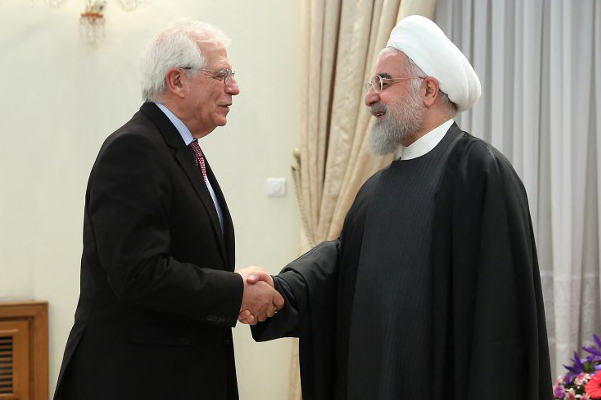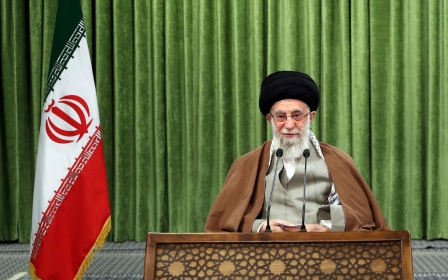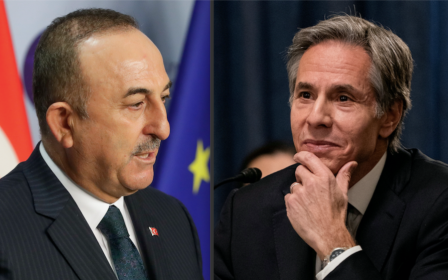EU set to sanction several Iranians over human rights abuses: Report

The European Union is expected to issue sanctions against several Iranian individuals for human rights abuses in the first such move since 2013, Reuters reported on Tuesday, citing EU diplomats.
Envoys for the European body are set to agree on Wednesday to impose travel bans and asset freezes on the individuals, three diplomats told Reuters, and their names would be published next week when the sanctions take effect.
The officials said the measures were being taken as part of a tougher stance on human rights and were not linked to the ongoing efforts to revive the Iran nuclear deal.
"Those responsible for serious rights violations must know there are consequences," one EU diplomat said.
Earlier this month, the EU also sanctioned 11 people from countries including China, North Korea, Libya and Russia.
In addition to the new sanctions, the diplomats said the EU would also renew an array of sanctions over human rights - which have been in place since 2011 - on more than 80 Iranian individuals.
The news of the sanctions has not been confirmed by the EU.
Despite the EU and the United Nations expressing concern over the human rights situation in Iran, no Iranians have been added to the sanctions list since 2013, as the bloc avoided such moves in hopes of safeguarding the nuclear deal that was signed in 2015.
On 9 March, the UN special rapporteur on human rights in Iran, Javaid Rehman, presented a report documenting what he described as the "bleak reality of the human rights situation in Iran", including Tehran's high death penalty rate, executions of juveniles, the use torture to coerce confessions and the lawful marriage of girls as young as 10 years old.
Iran has repeatedly rejected accusations of human rights abuses.
In a rare move last September, France, Britain and Germany summoned Iran's envoys to admonish them over their country's human rights record in what France's foreign ministry said were "serious and constant violations".
Returning to nuclear accord
Following the implementation of the deal, also known as the Joint Comprehensive Plan of Action (JCPOA), the EU in 2016 lifted all nuclear-related economic and financial sanctions on Iran but continued to renew sanctions against individuals for human rights abuses.
The US, which left the JCPOA in 2018, is now seeking to return to the accord, although negotiations are currently at an impasse, with Iran demanding unconditional sanctions relief and Washington arguing that the Islamic Republic should return to full compliance with the deal first.
US officials told Politico on Monday that the Biden administration planned to present a new proposal to jumpstart negotiations as early as this week.
The proposal asks Iran to halt some nuclear activities, including work on advanced centrifuges and the enrichment of uranium to 20 percent purity, in exchange for some economic sanctions relief, one official said while stressing the details are still being worked out.
Despite the ongoing talks, an Iranian official said last week that the Islamic Republic would not stop its 20 percent enrichment of uranium until all sanctions were lifted.
Middle East Eye propose une couverture et une analyse indépendantes et incomparables du Moyen-Orient, de l’Afrique du Nord et d’autres régions du monde. Pour en savoir plus sur la reprise de ce contenu et les frais qui s’appliquent, veuillez remplir ce formulaire [en anglais]. Pour en savoir plus sur MEE, cliquez ici [en anglais].





